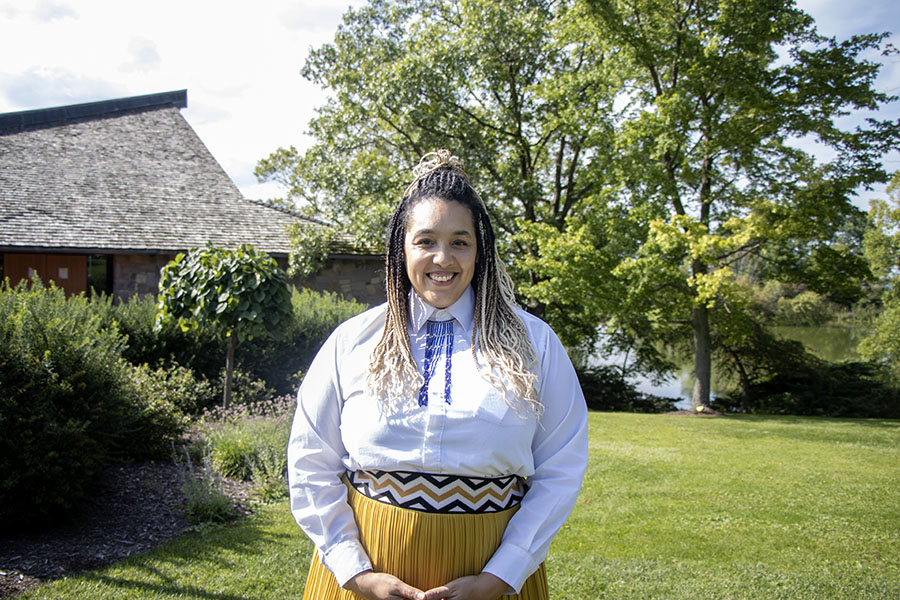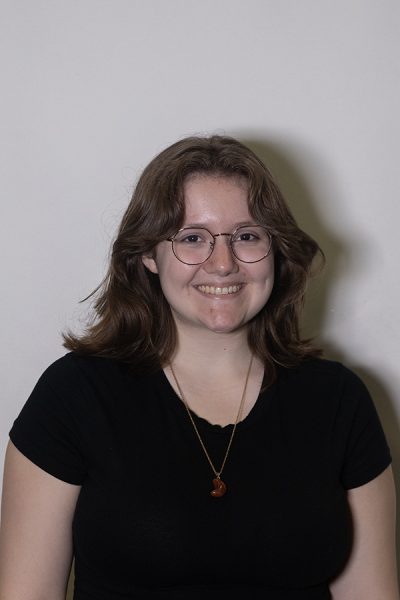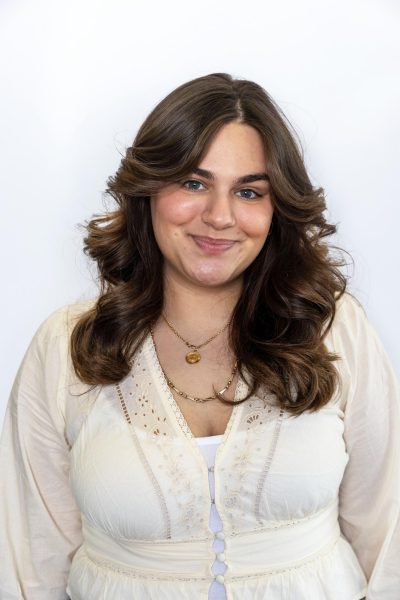Lauren Kelly Benson began Aug. 5 as the new director of the Office of Religious and Spiritual Life at Ithaca College. The decision brought an end to the college’s search for a permanent director to take over following Austin Reid’s time as interim director. Reid held the position during Spring 2024.
Before coming to the college, Benson worked with MNDFL @ Work, a lifestyle company that offers corporate and workplace coaching to help a variety of workplaces foster equity, mindfulness and holistic wellness through cohort training and workshops. Benson is also the founder and lead teacher of The Black Wellness Project, which supports yoga, meditation, mindfulness and ritual classes and workshops in Black affinity spaces. They also hold a degree in sociology from Hunter College and recently completed a Master’s of Divinity with a concentration in interfaith ministry from Union Theological Seminary.
Assistant News Editor Taylor Borash spoke with Benson about why they chose to apply for the position, how they plan to implement their core values when helping students and what plans they have in store for Fall 2024.
This interview has been edited for length and clarity.
TB: How did you hear about this position and what got you interested in applying?
LKB: I heard about this position as part of my overall job search as I was completing my Master’s in Divinity. … As I was wrapping up my work with my [Master’s in Divinity] and thinking about how to blend these skills I had built from my career prior to going back to grad school … student support kind of came to me, [and] it was almost spiritual. There were different websites that were sending me emails for all kinds of different jobs. … And that’s where I saw this job, and I was like, ‘Oh, Ithaca is such a beautiful place.’ It was the pond and seeing the chapel itself, and it’s not too far from my community back in New York City and New Jersey.
TB: I understand you approach your work through a trauma informed, disability justice and anti-racist lens. Can you tell me more about what that means and how you’ll implement those values when working with students?
LKB: I approach my work from those lenses because overall, my career has been a journey of coming to understand what I need and what supports me in getting through and learning to apply those things to others. So trauma informed [means] recognizing that … we’re really holding in some big concepts, and we’re holding some [concepts] that people come with all kinds of assumptions about. And so when we’re gathering together, it’s really important to recognize that there are ways to approach certain topics, and there are ways to hold spaces and create containers that can have a preparedness for what feelings might come up and what experiences might come up in individuals. … I’m a mixed-race, Black, non-binary femme, so I live the impacts of racism and take very seriously what it means to move in a way that recognizes the impacts [that has] on individuals and collectives of people. … And I live with invisible disabilities. … It’s just really important to me and everything that I do that we are working as hard as we can to provide space physically and emotionally and spiritually that is informed by what people might need in order to feel welcome in the space.
TB: How do you plan to support students during the ongoing Israel-Hamas war?
LKB: I think it’s really about creating spaces where we can be with that, both in affinity and in interfaith ways. I think it’s about not ignoring that this is something that’s happening and that’s impacting us. And I think my understanding is that last year, in response, there was a lot of learning, and I think it’s really important to bring that learning in, and I think that we’re ready as a community to process some of that together. … I also think we need to acknowledge some of the emotional hardship that comes with this time on the clock of the world … and I really desire the chapel to be a space people can come to when it starts to feel big or hard, and [show them] that there can be some sort of sweetness and softness to land in as we wrestle with that.
TB: How do you plan to provide space for students to freely express any religion or religious views on campus, especially during a time when people feel so divided?
LKB: So I’m working on a series of monthly events. … They’re basically going to be like an interfaith, storytelling, open mic, coffee shop kind of space for the whole community — so staff, faculty, students, everyone — one evening a month to start. And it feels exciting, we’ve got the elements of fire and water to hold us with the fireplace and the pond, we light some candles, we dim the lights. It’s a simple sign up–sign in process. And each month we’ll have a theme, an example being on love, on faith, on grief. And anyone is welcome to share on love from their faith or values or ethical understanding, and they can share in ways that feel appropriate. … If you want to dance on love, if you want to share from a sacred text that moves you, if you want to share from a secular text that feels sacred to you [or] share if you have a poem or writing. I really want it to be an open mic because I think that witnessing others in their expressions of their faith is just as important as knowing and understanding your own expression of faith. So, as we work to ensure that Muller Chapel is inherently interfaith, I think we want to really come to appreciate the humanity of those who are practicing their faith regardless of our own.
TB: Is there anything you’re really looking forward to within this job?
LKB: I will say that even as I applied for this job, I knew what holding interfaith spaces would mean in the greater context of the world. And so while I’m not excited that [the Israel-Hamas war] is happening, and that’s something we’re wrestling with. … What is exciting is to be in a position in a community to support the holding of that. Because I think that when we ignore it, it gets so much bigger and louder, right? I think especially spiritually, we start really feeling misaligned. I have many skills and I could’ve gotten many jobs, but I knew my work had to be in supporting others spiritually in an interfaith way, and for that to involve young people.
















